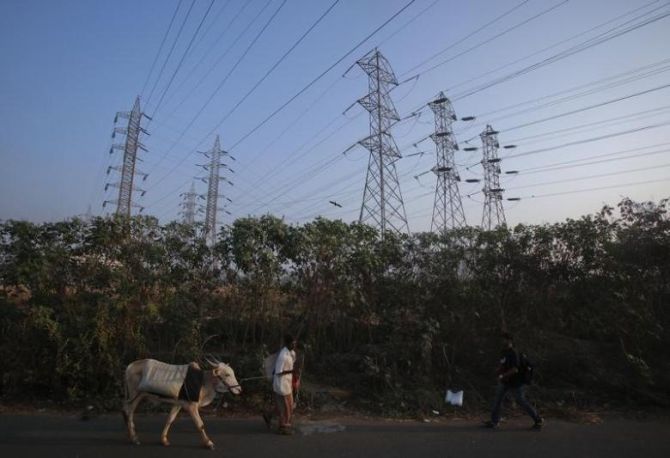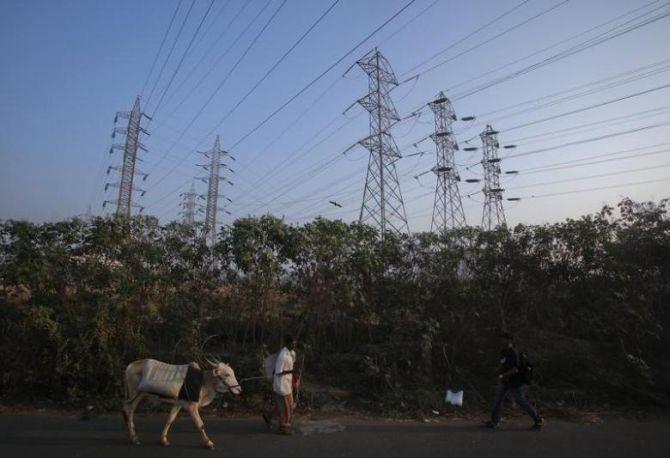Two years after the Centre’s flagship village electrification scheme Saubhagya concluded with the government claiming 99.9 per cent success, several states have added close to 1.1 million rural households that remain to be connected to the electricity grid.
This new list includes earlier unwilling households that have now agreed to have a metered connection and also those built or discovered in the states’ surveys since 2019.
Assam and Uttar Pradesh are the states that have the majority of such new additions.
Officials said household electrification was an ongoing process and, despite the Saubhagya scheme concluding, states continued to come up with new sets of numbers.
Recently, in Odisha it was discovered that a hamlet of Ubarpeda, the ancestral village of Draupadi Murmu, presidential candidate of the ruling BJP, is un-electrified and the authorities are now rushing to provide an electricity connection in the area.
Pointing out that the un-electrified area in question was a hamlet and not the entire village, a senior official said: “There are several such areas left uncensored by the state government or are on contentious land patches.
“There have also been cases where state governments/state electricity departments did not submit proper documentation.”
The local electricity department in Odisha has reportedly said the hamlet Dungursahi was built on forest land, and hence official clearance was not received to construct electricity supply infrastructure.
The sanction from the Centre for this new round of electrification by the states stood at Rs 4,100 crore till August 2021.
Since then, of the 1.1 million new identified houses, 400,000 have been electrified.
Among the states that have seen no progress are Arunachal Pradesh, Madhya Pradesh, Manipur, and Uttar Pradesh, according to the data submitted by the Union Ministry of Power in response to a question in the Rajya Sabha.
“A total of 2.817 crore (28.17 million) households including 91,80,571 households of Uttar Pradesh were electrified since the launch of Saubhagya, up to 31.03.2021.
“Thereafter, some States reported that 11,83,870 additional households (including 3,34,652 households of Uttar Pradesh), which were unwilling earlier, were now willing for electrification.
“These were also sanctioned. Against this, 4,40,893 households have been electrified as on 15.03.2022,” said the ministry in the same reply.
Saubhagya, or Sahaj Bijli Har Ghar Yojana, was launched in 2017 as part of the rural electrification campaign of the BJP-run Central government, called the Deendayal Gram Jyoti Yojana (DDUGJY), for 100 per cent rural household electrification.
Rural Electrification Corporation (REC) was the nodal agency for the two schemes.
India achieved 100 per cent village electrification in 2018 and the household electrification target in 2019 was 99 per cent.
Under Saubhagya, the Centre provided 60 per cent of the project finance to states for giving connections to rural households, and the rest was borne by states.
Now with the new Rs 3-trillion Revamped Distribution Sector Scheme (RDSS) for power distribution reforms launched in the Union Budget 2021, fund allocation for all the existing schemes have been subsumed under it.
The DDUGJY for rural power reforms and the Integrated Power Distribution Scheme (IPDS) for urban areas will be part of this new umbrella scheme.
Fund allocation to these schemes will be done in accordance with the plans submitted by the states.
Fund disbursement for the latest round of household electrification is being done from the erstwhile DDUGJY corpus and the pending amount from it which was sanctioned to the states earlier, said officials.
All these allocations will be streamlined under the RDSS.
The DDUGJY was allocated Rs 3,103 crore in the Union Budget 2020-21.
In the recent Union Budget, Rs 7,565 crore has been earmarked for the RDSS and nothing for the DDUGJY and IPDS separately.
Source: Read Full Article

